Air quality is not the same as it used to be 40-50 years ago, and that is why the air we inhale and its impact on our health is becoming a big concern. You must have heard about air purifiers which are there in the market to purify the air of your house. Those are great! But, have you heard about Air Ionizers?
Air Ionizers are also a kind of air purifier but they work differently than Air Purifiers. I have mentioned their head-to-head comparison later in this article. Let’s talk about “Ions” on the Fan.
Although there are standalone Ionizers are there in the market, there are modern fans coming with Air Ionizer as well. And, it is in great demand because a fan with ionizer serves two purposes.
Let’s talk about What does Ion Mean on a Fan, and we will discuss more on this to completely understand such fans with an ionizer.
Contents
- 1 What Does Ion Mean on Fans?
- 2 What Are Negative Ions?
- 3 How Do Ionizing Fans Work?
- 4 What Does ION Mean on a Tower Fan?
- 5 What Does ION Mean on a Lasko Fan?
- 6 What Is an Ion Cooling Fan?
- 7 Do Ionizers Kill Viruses?
- 8 Does Fan Ionizer Really Work?
- 9 Are Fans With Ionizers Safe?
- 10 Are Ionizing Fans Bad For You?
- 11 Are Ionizer Air Purifiers Worth the Investment?
- 12 What Is The Difference Between Air Ionizer And Air Purifier?
- 13 Conclusion
What Does Ion Mean on Fans?
“Ion” on fans refers to the ionizing feature, which is designed to improve the air quality of the house. Ions are electrically charged particles that can be either positively charged (cations) or negatively charged (anions). There are different uses of Ions in different things, but when we talk in the context of fans, the ionizing feature primarily involves generating negative ions and releasing them into the surrounding air. Then, these negative ions attract and attach with positive ions molecules such as dust, smoke, pollutants, allergens, etc. This process is known as Ionization. Once both positive and negative ions are attached, they get heavier, and can’t stay in the air. So, they fall on the ground which are later cleaned up when you clean the surface and other things where they fall. In this process, the air gets cleaned up, and you enjoy pure air.
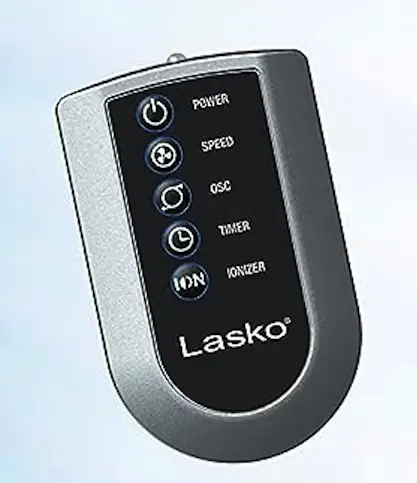
The presence of negative ions in the air is also believed to have potential benefits for human health and well-being. Some studies suggest that negative ions may improve mood, reduce stress, and enhance overall mental clarity. As a result, fans equipped with ionizers are often marketed as air purifiers that not only provide a cooling breeze but also contribute to a healthier indoor environment.
What Are Negative Ions?
Negative ions are electrically charged particles that contain an additional electron, resulting in a negative electrical charge. They are present in various natural settings, such as forests, near waterfalls, and after rainstorms. Negative ions are believed to have positive effects on human health and well-being.
In nature, negative ions are created through natural processes like sunlight, moving air, and the effects of water. When water evaporates, for example, it can release negative ions into the surrounding air. These ions are thought to contribute to the feeling of freshness and invigoration often experienced near water bodies or after a rain shower.
The use of ionizers in fans and other air purification devices aims to replicate this natural phenomenon by artificially generating negative ions and releasing them into indoor spaces.
Tabular Comparison of Negative Ions and Positive Ions in the Air
| Aspect | Negative Ions | Positive Ions |
|---|---|---|
| Charge | Negatively charged (extra electron). | Positively charged (missing an electron). |
| Formation | Created naturally through processes like sunlight, moving air, and water evaporation. | Generated by processes like radiation, electronic devices, and pollution. |
| Effects | Often associated with feelings of freshness, well-being, and improved mood. | Can contribute to feelings of discomfort, fatigue, and stress. |
| Air Quality | Believed to help reduce airborne pollutants by causing particles to agglomerate and settle. | Not directly involved in air purification. |
| Natural Sources | Forests, waterfalls, beaches, and after rainstorms. | Urban areas, indoors with electronic devices, and polluted environments. |
| Health Effects | Suggested to have potentially positive effects on mood, mental clarity, and respiratory health. | Linked to potential negative effects on well-being, especially in high concentrations. |
| Availability | More prevalent in natural, outdoor environments. | Can be more prevalent in indoor spaces, especially in polluted or confined areas. |
How Do Ionizing Fans Work?
As explained above, Ionizing fans work by incorporating an ionizer, a component responsible for generating negative ions. There are various methods to produce negative ions, with corona discharge being a common one. In this process, an electric current is applied to a needle or wire, which then emits a flow of ions into the surrounding air.
As the fan circulates the air, the negatively charged ions are propelled outward, dispersing throughout the room. These ions immediately start to interact with airborne positive particles. Due to their electrical charge, the negative ions attach themselves to the particles. Once attached, the particles become negatively charged as well, leading to ion attraction.
The ion attraction causes the particles to increase in size which makes them too heavy to remain freely moving in the air. Thus, then fall to the ground or furnitures in the house. This way, Ionizing fans work well to not just give you cool breeze of air but making the air pure for you as well.
What Does ION Mean on a Tower Fan?
When a tower fan features an “ION” mode, it indicates the presence of an ionizing feature in the fan’s operation. Tower fans are known for their vertical and space-saving design, making them popular choices for various settings, including bedrooms, offices, and living rooms. By activating the “ION” mode on a tower fan, users can experience the added benefits of improved air quality through ionization while enjoying the fan’s cooling effects.
What Does ION Mean on a Lasko Fan?
Lasko is a reputable brand that manufactures a wide range of fans, including those equipped with an ionizing feature. When the term “ION” is mentioned on a Lasko fan, it serves the same purpose as on any other fan: it signifies that the fan comes with an ionizer for air purification. Lasko fans are well-regarded for their quality, and the addition of an ionizer can be an attractive feature for those seeking improved indoor air quality.
So, on different fans, ION means nothing different but it means that the fan is equipped with an Ionizer to purify the air that you inhale in your house.
What Is an Ion Cooling Fan?
A fan that comes with an Ioinizer is called Ion Cooling Fan. While the primary purpose of these fans is to circulate and cool the air, the addition of an ionizer allows them to offer additional benefits related to air purification.
The combination of cooling and ionization creates a more refreshing and invigorating environment, especially during hot and stuffy weather. As the fan cools the air, the ionizer releases negative ions, which can further help to cleanse the air by reducing the concentration of airborne particles and pollutants.
Do Ionizers Kill Viruses?
No, Ionizers don’t kill viruses but when negative ions attach to viruses, they increase the particles’ weight, causing them to become less buoyant and more likely to settle on surfaces. As a result, the concentration of viruses in the air may be reduced. Later, when they fall to the ground and furniture in the house, you can use Sanitisers to make sure the viruses are killed.
So, it is important for you to note that ionizers alone cannot be considered a primary defense against viruses. But, to kill viruses, sanitizers can be used when they fall to the surface.
Does Fan Ionizer Really Work?
The effectiveness of fan ionizers is a topic of ongoing research and debate. Some studies and anecdotal evidence suggest that negative ions can have positive effects on air quality and overall well-being. Supporters of ionizers claim that they can help remove allergens and pollutants from the air, leading to a cleaner and fresher atmosphere.
However, the results of studies on the effectiveness of ionizers are not always consistent, and the benefits may vary based on factors like room size, the strength of the ionizer, and the presence of other air purification measures. As a result, while some users may experience noticeable improvements with ionizers, others might not perceive significant changes in air quality.
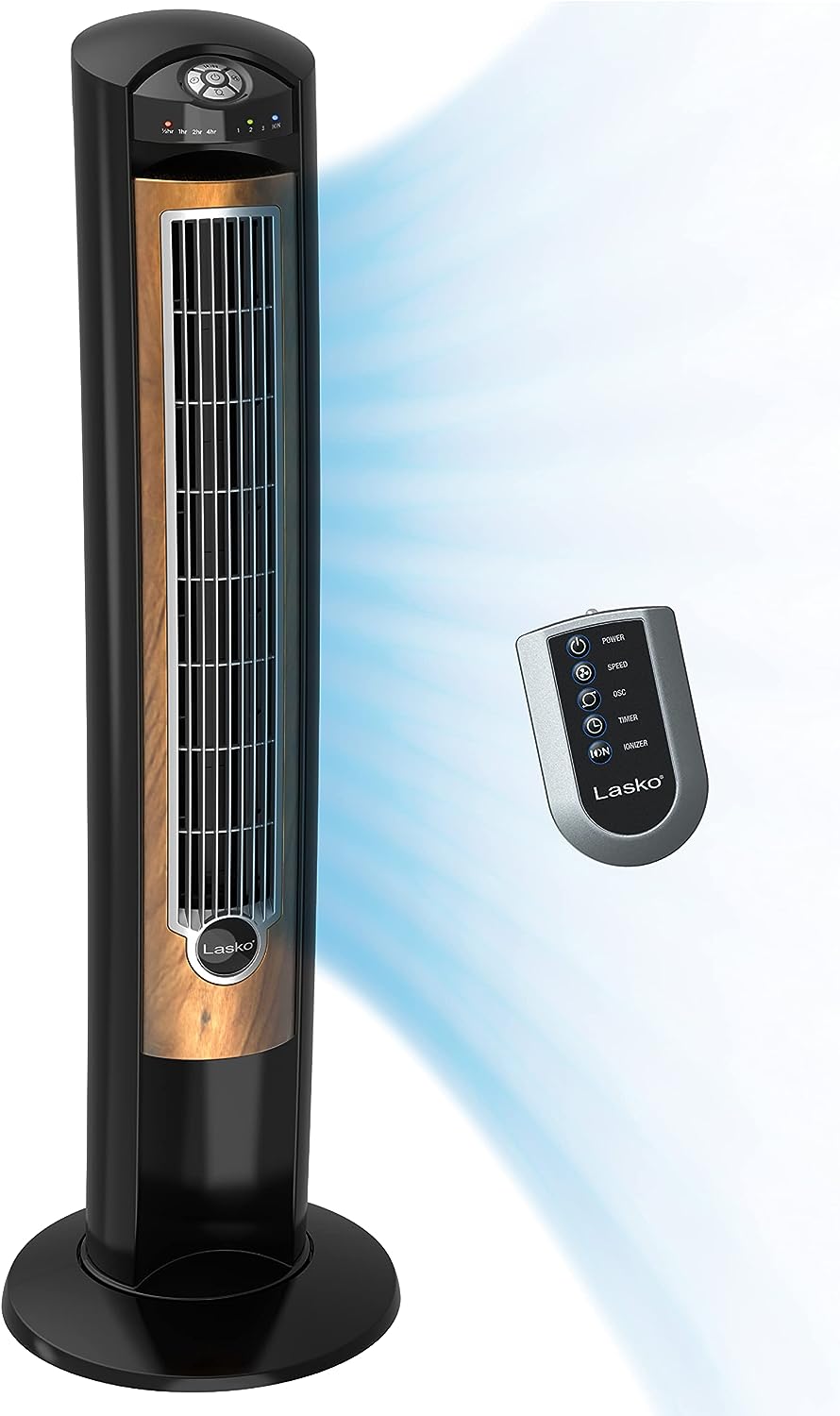
Are Fans With Ionizers Safe?
Fans with ionizers are generally considered safe for most people when used as directed. The negative ions produced by the ionizer are non-toxic and pose no direct harm to human health.
However, there are a few safety considerations to keep in mind. Some ionizers can produce small amounts of ozone as a byproduct of ionization. Ozone is a lung irritant and can be harmful in high concentrations. Therefore, it’s essential to choose fans with ionizers that adhere to safety standards and regulations to avoid excessive ozone production.
Additionally, if you are suffering from any kind of respiratory condition, such as asthma or chronic obstructive pulmonary disease (COPD), it is recommended to consult your doctor before using an Ionizer fan in your room.
Are Ionizing Fans Bad For You?
The safety of ionizing fans is a matter of concern for some individuals. While negative ions themselves are not harmful and occur naturally in various environments, excessive exposure to certain types of ions or ozone can have potential health implications.
As mentioned earlier, the main safety concern with ionizing fans is the potential production of ozone. High ozone levels can irritate the respiratory system and worsen respiratory conditions in susceptible individuals. Therefore, it’s crucial to use ionizing fans that comply with safety regulations to minimize ozone production and maintain indoor air quality within acceptable limits.
It’s worth noting that negative ions are generally considered safe and have been associated with potential health benefits, such as improving mood and reducing stress. However, as with any technology, moderation, and adherence to safety guidelines are essential.
Are Ionizer Air Purifiers Worth the Investment?
If you live in an area with more dust or any small particles, Ionizer Air purifiers are good. But, if you feel there is more pollution in that area, high-end Air Purifiers would be needed which cleanse the air by killing the bacteria and viruses.
So, it depends on the requirement and usage! Moreover, An Ionizer air purifier is a good investment if you want to breathe in clean air. I would rather advise you to go with Fan with Ionizer which will give you fresh and pure air.
What Is The Difference Between Air Ionizer And Air Purifier?
The primary difference between an air ionizer and an air purifier lies in their mechanisms for improving indoor air quality.
Air Ionizers release negative ions into the air, which attach to airborne particles and cause them to agglomerate, making them heavier and more likely to settle. However, ionizers do not physically remove the particles from the air.
On the other hand, Air Purifiers use various technologies such as HEPA filters, activated carbon filters, or electrostatic precipitators to physically trap and remove particles from the air. They capture pollutants like dust, pollen, pet dander, and even some bacteria and viruses, effectively cleaning the air.
Both air ionizers and air purifiers have their advantages and limitations. Air ionizers are generally less effective at removing larger particles but can be helpful in reducing smaller particles and odors. Air purifiers, particularly those with HEPA filters, excel at removing a wide range of airborne particles, making them highly effective air-cleaning solutions.
The choice between an air ionizer and an air purifier depends on individual needs and preferences, the specific pollutants to be addressed, and the desired level of air purification. Some users may opt for the combined benefits of an air purifier with an ionizer, enjoying the advantages of both technologies in one device.
Tabular Comparison Between Air Ionizers and Air Purifiers
| Aspect | Air Ionizer | Air Purifier |
|---|---|---|
| Mechanism | Releases negative ions to charge particles, causing them to agglomerate and settle. | Uses filters (e.g., HEPA, activated carbon) to physically trap and remove particles from the air. |
| Particle Removal | Less effective at removing larger particles, and better for smaller particles. | Highly effective at removing a wide range of particle sizes, including large and small particles. |
| Odor Reduction | Can help reduce odors by agglomerating odor particles. | Can effectively remove odors through the use of activated carbon filters. |
| Allergen Removal | Limited effectiveness in removing allergens. | Highly effective at removing allergens like dust, pollen, and pet dander. |
| Bacteria/Virus Removal | Limited effectiveness against bacteria and viruses. | Some air purifiers with HEPA filters can capture certain bacteria and viruses. |
| Ozone Emission | Some ionizers may emit ozone, which can be harmful in high concentrations. | Generally do not emit ozone when equipped with proper filters. |
| Noise | Tends to be quieter as they don’t require fans for particle capture. | May generate noise due to the operation of fans and filters. |
| Maintenance | Minimal maintenance is required, mostly cleaning of surfaces. | Regular maintenance is required, including filter replacement and cleaning. |
| Effectiveness | Less proven overall effectiveness in improving indoor air quality. | Proven track record of improving indoor air quality, especially with HEPA filters. |
| Example Product | Lasko Ionizer Fan | MS18 Air Purifier |
Conclusion
Air Ionizers are great, and you can go ahead with a fan with Air Ionizer if you really care about inhaling fresh and toxin-free air within your house. So, now, you know what does “Ion” mean on a Fan, and you also know what a fan does if it has an Ion button.
If you have any queries, please do ask in the comments!

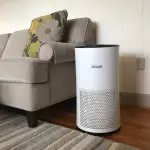
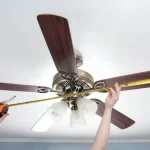
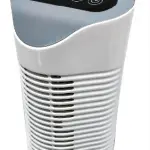
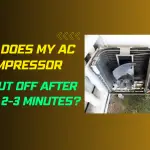
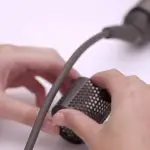

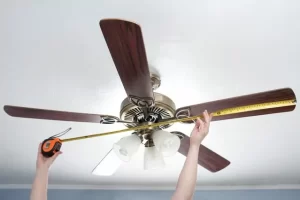
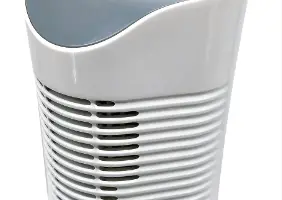

Add Comment